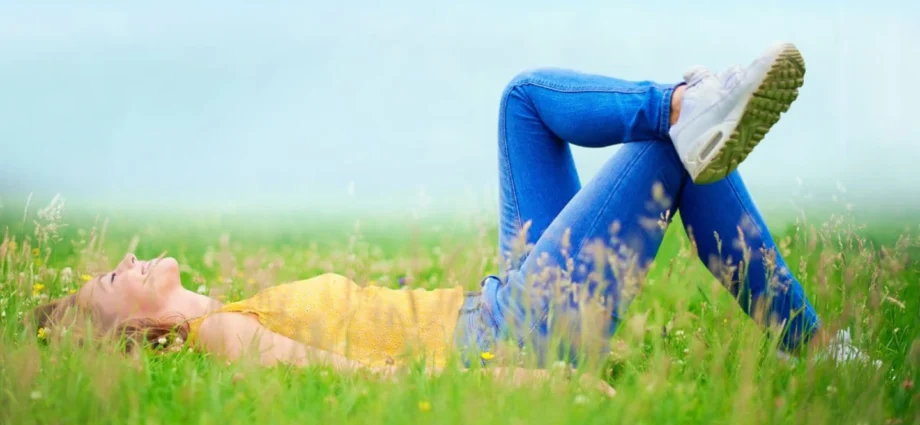In a culture that glorifies productivity and hustle, the idea of doing nothing can seem almost radical. We are constantly encouraged to fill every moment—answer one more email, check off one more task, and squeeze productivity from every free second. But this relentless pace comes at a cost: stress, burnout, and a disconnect from ourselves. Ironically, the thing we’re often missing—stillness—might be the very thing we need the most.
Doing nothing isn’t about laziness or avoidance. It’s about making space. Space to breathe, to observe, to be present. When we allow ourselves the luxury of stillness, we open the door to benefits that are often overlooked in the rush of modern life.
Reconnecting With The Present Moment
One of the most profound effects of doing nothing is the opportunity it provides to be truly present. Our minds are often consumed by the past or future—rehashing conversations, planning the next steps, worrying about what could go wrong. Stillness interrupts that loop. Whether you’re sitting quietly on a bench, staring out a window, or lying on the floor watching the light shift on the ceiling, you are, in that moment, here.
In stillness, there’s no agenda. No outcome to chase. It’s a quiet return to the now, which is the only time that truly exists. This shift can feel subtle at first, but it begins to rewire how we interact with the world. Over time, it becomes easier to notice the small things—a breeze on your face, the way your breath rises and falls, the faint sounds of life happening around you.
Cultivating Clarity And Creativity
Doing nothing can clear the mental clutter that builds up from constant activity. When the mind isn’t preoccupied with to-do lists or deadlines, it becomes more open and reflective. This mental spaciousness often leads to a natural sense of clarity. Solutions to problems that once seemed complicated might reveal themselves effortlessly. New ideas bubble up. Old ideas are seen from a different angle.
Many of history’s greatest thinkers and artists were known for spending long periods in solitude or idleness. They understood that creativity doesn’t flourish under pressure alone—it needs room to breathe. When you give your brain a break from constant input, it starts to form novel connections. Stillness becomes the seedbed for inspiration.
Restoring Mental And Physical Energy
Just as our bodies need rest to recover, our minds need moments of complete disengagement to recharge. Even activities we consider relaxing—watching TV, scrolling social media, or listening to music—can keep our brains engaged and stimulated. Doing nothing, in contrast, removes stimulation altogether. It’s like hitting the reset button.
This kind of deep rest lowers stress levels and calms the nervous system. Heart rates slow down. Cortisol levels drop. Your body remembers how to simply be, without always needing to do. Over time, regularly embracing these pauses can improve focus, reduce anxiety, and boost overall well-being.
Challenging The Culture Of Constant Productivity
One of the more subtle yet powerful benefits of doing nothing is the act of resisting a culture that equates busyness with worth. In many societies, especially in the Western world, productivity is idolized. We often feel guilty if we’re not being “useful.” But who defines usefulness? And at what cost?
Doing nothing can be an act of self-liberation. It’s a way of asserting that your value is not tied to output. It’s a declaration that your time doesn’t always need to be monetized or optimized. In that resistance lies freedom—a chance to redefine what a meaningful life looks like, not in terms of constant action, but in balance.
Learning To Be With Yourself
Perhaps one of the most underrated outcomes of stillness is the ability to be at peace in your own company. Many people are uncomfortable being alone with their thoughts, which is why we so often distract ourselves. But doing nothing gradually teaches you to sit with discomfort—and eventually, to move beyond it.
As you spend more time in stillness, you start to hear yourself more clearly. Your internal world, once drowned out by external noise, starts to come into focus. You may discover insights about your desires, fears, and motivations. You may also find a deeper sense of self-acceptance and compassion. In learning to be with yourself, you develop an inner steadiness that no external chaos can shake.
Conclusion
In a world that moves fast and demands more, choosing to do nothing is not a waste—it’s wisdom. Stillness is not emptiness; it is presence. It is where clarity, creativity, and calm arise. By embracing moments of doing nothing, we don’t fall behind—we reconnect with what matters most. So the next time you feel the urge to fill a quiet moment, pause instead. Resist the pull to check your phone or tick another box. Let yourself sit. Breathe. Be. In that simple, radical act, you just might find everything you’ve been missing.
Check these out for related content:
https://seabreezetinyhomes.com
https://informagiovanicirie.net
https://thinkingcreatively.org
https://healthcareforgunner.com
https://free-download-casino.com

